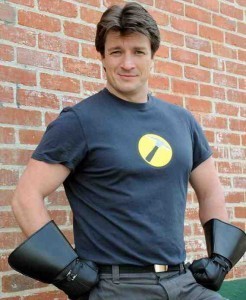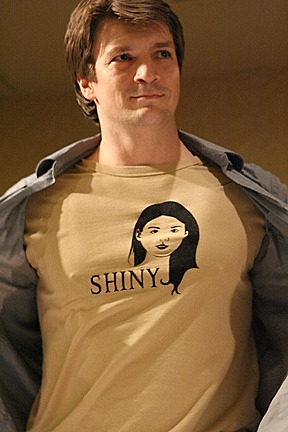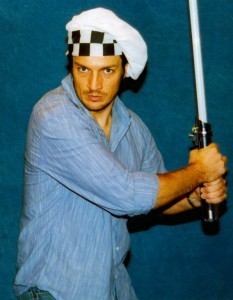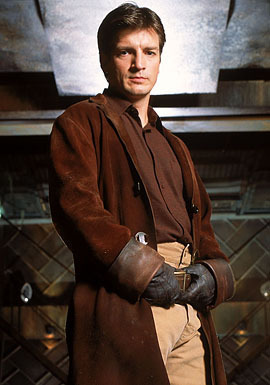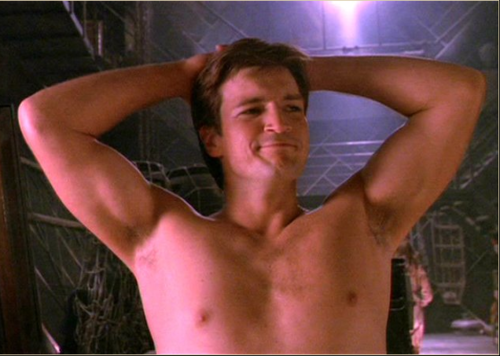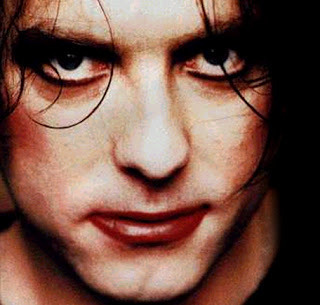L.K. Rigel's Blog, page 15
March 4, 2012
Sneak Peek-itis
 For all my readers so patiently (and not-so-patiently) waiting for Bride of Fae, I apologize profusely and profoundly, as the saying goes. I've had to actually work at the day job more than I'd like.
For all my readers so patiently (and not-so-patiently) waiting for Bride of Fae, I apologize profusely and profoundly, as the saying goes. I've had to actually work at the day job more than I'd like.
::stamps foot in angry fairy fashion::
But here's another peek at Bride of Fae, a scene I had a lot of fun writing.
1876 Dumnos. In the faewood…
It was taking an age to assemble the court for troop night. Prince Dandelion looked around, wondering who they were waiting for. The trooping fae must be gathered at the circle by now, dancing and singing while Idris's entourage was stuck here in the throne room.
This obsession with formality wasn't fairylike. Dan's body cried out for movement. He wanted to run. To dance. To get away from Dumnos and skip troop night altogether. Maybe fly up to the borealis and sky-surf in the northern lights. Idris insisted on pomp and ceremony to make everyone forget he had no right to sit on the moonstick throne. Forget he had no right to lead the fae into the human world on troop night.
Dan couldn't forget. After all, he was the rightful king of the Dumnos fae.
The last king and queen, Dan's father and mother, were killed when he and his little sister were children. Idris was to have been regent only until Prince Dandelion came of age, but then no one could find the fairy cup, the enchanted glass tankard required for coronation. Without it, there could be no ritual to bind the fae to their new king. Despite the reward Idris offered, the fairy cup remained missing.
After a thousand human years, which even in fae was more than a blink of an eye, Idris seemed fixed in position. He wore the moonstick crown and let fairies call him my liege. Dan should have objected, but he found he didn't care. He almost wouldn't mind if the fairy cup was never recovered. If only the dark in Idris hadn't infected the whole of the court. Dan felt it. The Dumnos fae were on the verge of a shift from light to dark.
At least his sister was enjoying herself. Princess Narcissus looked spectacular tonight beside the moonstick throne, like an ongoing firework. She'd chopped off her apple-red hair again so it stuck out in wild spikes. Her green eyes sparkled with mischief, and she waved her arms wildly through the slits in her cloak. The amazing fabric shimmered.
When Cissa laughed, conversations paused and heads turned her way. Fairy, sprite, pixie, or leprechaun—it didn't matter. Cissa's wicked delight bedazzled them all. Even Idris responded to her. A layer of hardness lifted from his face, the light in his eyes burned a little less cruel.
"Let's go now!" Cissa rolled her eyes and stamped her foot with a playful pout. "Maxwell is probably still cleaning the dirt from his toenails."
"Max?" Dan raised an eyebrow and looked at Aubrey, the closest thing Idris had to a confidant. "A goblin in the promenade?"
Goblins were necessary, of course. They made all the good stuff. But they were so ugly! Idris had banned them from his court for that reason. Harsh, but not completely unreasonable. Aubrey shrugged his shoulders.
Cissa extended her wings and flitted about the throne in a sparkling blur. She settled just above the ground in front of Idris, careful to keep her cloak drawn close. "Why should we have to wait for that goblin?"
Dan inwardly chuckled. No doubt she had plans to scandalize them all at the troop circle when she revealed the outfit underneath—or lack of one.
Idris shifted his weight gracefully and considered Cissa. One corner of his mouth turned up, if slightly. He did look marvelous on the throne. Regal. Like the moonsticks in his crown, those imbedded in the throne caught and reflected light. It gave the effect of being surrounded by moonlight dancing on fresh snow.
As usual, Idris wore almost nothing. His crown of leaves and moonsticks sparkled, silver blue against his wild flame-orange hair. Cascading from his throat over his bare chest was an ornate tether woven with diamonds and sapphires and a large bead of bright-cut Dumnos steel. A length of cloth about his loins completed his ensemble. He was wiry but muscular, with the fine build of a dancer.
"Princess Narcissus makes a good point." Idris rose from the throne and air-kissed Cissa. His voice was mellow and sensuous and made Dan think of sunlight on honey. "Max can catch us up." He exuded self-satisfaction, power, and elegance.
Dan couldn't deny that fairy had style.
Idris led the procession out of the hall with Cissa on his arm, followed by Dan and Aubrey, then assorted court fairies and pixies and a group of leprechauns at the back. Idris loved to make a splash. He was in his glory.
They were nearly at the circle when he paused at the Bower of Elyse and the parade halted. By the angry shriek behind them, someone must have trod on a sprite's toes. "Ooh. Pardon me." The deep, gravelly voice belonged to Max. The goblin had made it after all. "Oh. Oh." He pushed closer. "Sorry."
Idris didn't acknowledge the disturbance. Why had he invited a goblin at all? Cissa's mouth twitched. She looked furtively over her shoulder then quickly faced forward.
Oh, Cissa! Dan suppressed a laugh. Her cloak wasn't just beautiful, he realized. It was magical. The fabric was probably goblin-made, and Max was probably the goblin who made it. Dan would lay odds Cissa had stolen it. He recognized his sister's classic guilty look: the knitted eyebrows, the shifting glances. He cast a spell to confine Max to the back of the line.
Music filtered through the trees from the circle. Dan had to fight the urge to fly off to the dancing, and he could sense the others doing the same, waiting for Idris to complete his pantomime.
Idris inclined his head tragically toward the place where the faeling Elyse had slept eight hundred years ago. He closed his eyes in a show of reverence and pain. The Bower of Elyse had been sealed ever since she rejected Idris along with her fae heritage. Idris had forbidden entry to all but himself.
All for show, Dan was positive. Idris's grief had never rung true, but Dan couldn't figure out why he insisted on the affectation. He wondered how Aubrey felt about it. When Aubrey begged to bring Elyse back to fae, Idris had forbidden him to even see his faeling daughter. As a half human, if Elyse remained in the human world she would eventually die.
Idris offered Cissa his arm. "Shall we continue?"
A chilling thought struck Dan. What if Idris were to marry Cissa? As his bride she'd give him legitimate permanent claim to the moonstick throne.
When they reached the circle, Dan broke out of line and moved away from the crow. The thought of Cissa and Idris together had driven away all desire to dance. He leaned against a tree and watched Idris circulate, accept greetings, and dispense his charm. A flicker of irritation crossed the king's face when Cissa hurried away from him.
The music was intoxicating, mostly pipes and drums and an ancient lute. Near the lute player, a human woman spun around and around and around. Her skirt clung to her her legs, damp with sweat. Her bare feet were bloody.
Max climbed onto the stump of a nearby fallen tree and scanned the gathering. Looking for Cissa, no doubt, but he wouldn't see her yet. Not until Dan found out what was going on there. Dan grinned at the goblin's boots. Even standing on a tree stump in stacked heels, the top of Max's head only reached Dan's shoulder. Max's gaze passed over Cissa in animated conversation with her best friend, Morning Glory.
"Poor treesap," Max muttered. He indicated the twirling human. "Caught in the troopers' path tonight of all nights."
"They should have left her alone," Dan said.
"This is Idris's influence," Max said. "The fae once spent troop night granting favors instead of doing mischief. The world was a better place then."
"No, it wasn't," Dan said. "But we were a lighter fae."
"I'll grant you that, Prince Dandelion."
"I once gave a fellow a love potion on troop night." Dan smiled at the memory. "He was hopeless. Besotted by a local farmer's daughter."
"Did it backfire on the treesap?"
"Not at all. He and his wife grew fat and happy at Glimmer Cottage until Elyse returned and drove them off. Even then, they lived together in bliss to a good old human age."
"Hmph. You're not the misanthrope I've heard tell about, my prince," Max said. "If only the damn cup weren't lost. You'd make a better king than that one."
Max fairly glowered at Idris, and with more than dislike. There was pure hatred in his beady stare.
"Tell me something, Max." No use in talking of lost cups and what might have been. "How did you get into this thing tonight? What favors have you been doing for Idris?"
Max's eyes widened and he turned purple.
"What?" Dan was only joking, trying to change the subject. "Am I right?"
"Um…have to go." Max spun on his stacked heels and jumped off the stump, but Dan grabbed him by the back of his coat.
"You don't have to go anywhere." Dan kept his voice low, not wanting to attract attention. "What is this fabric?" The shirt under Max's leather coat was as cold as if it touched no skin. It shimmered, like Cissa's cloak. "Glimmermist? Is that why you're after my sister? Her cloak is made of glimmermist."
"You ask too many questions. But yes, I need to find the princess."
"Well, you won't," Dan said. "You won't see Cissa again until I let you."
"You can't spell me when I'm wearing this." Max grinned and clutched a handful of the glimmermist shirt. Not ten feet away, Cissa gave Morning Glory a hug and both fairies laughed.
"Apparently I can," Dan said. "I cast it when you were making so much noise back there on line."
Max took a step back. His face scrunched in a deeper scowl. "That should be…impossible." His gnarly voice dropped to a whisper. "I can say only this. Elyse's Bower isn't what you think it is. Now, don't press me. He's coming."
Indeed, Idris was standing just behind the goblin. "What's the problem, Max?" Idris snapped his fingers three times. With a pop and a flash, a pixie appeared with a tray holding three glasses of sparkling pink liquid. "I've been hearing your grumbles since you stumbled in on us. You're quite spoiling my mood."
The pixie offered Max a glass of the rose wine, which the goblin accepted dubiously. Dan lifted the spell, and Max's expression grew determined as Cissa reappeared to his view. "I do have a grievance, my liege." He shifted his weight from foot to foot and waved the wine glass at Cissa. "A grievance against the princess!"
Cissa and Morning Glory faced them, along with the other fae standing nearby. Cissa turned bright red with embarrassment, and giggles rippled through the fae. None doubted she was guilty—of whatever Max would claim she'd done.
The question was what would Idris do about it?
Cissa glared at Max nervously, but she didn't deny her crime. "It's not my fault." She twirled, and the glimmermist cloak shimmered gloriously. "I couldn't resist. It's too beautiful."
"The princess has confessed!" Max practically salivated. "I demand satisfaction."
"Indeed, she has. Satisfaction, you say?" Idris turned his attention on Cissa. "A kiss should do it. A good one, mind you."
Max dropped his accusing finger. The outrage on his face became a humorous gleam in his eye. Cissa looked at Dan, mortified, and Dan stared back at her hard. He willed her to obey Idris no matter how distasteful the command. He can't know we're not bound to him.
"But one kiss," Idris said. "How hard can that be, Princess Cissa?"
"Judging by the goblin, it can be very hard!" Morning Glory cried, and the fae burst out laughing.
The music ceased and the human girl fell in a lump to the ground. She moaned in pain, but none moved to help or offer a word of kindness. Dan sighed. He couldn't imagine ruling this self-centered lot. He pulled a handful of dust from a pouch on his belt and strode over to her, even as the crowd moved away to watch the new shiny object: the drama of beauty and beast. Would the goblin get his kiss?
Dan sprinkled fairy dust over the human's feet. She looked at him with gratitude and relief, but the light in her eyes dimmed. Something tugged at Dan's heart. Was it sympathy?
"This is my judgment," Idris said. "Princess Narcissus owes Goblin Max one kiss."
Cissa grimaced at Dan. Don't refuse, sister. Don't let anyone know.
The Dumnos fae were all bound by the high gods' will to follow the commands of the regent, just as they'd be bound to Dandelion when—if—he were ever crowned. Dan and Cissa had never been bonded to Idris. They didn't know why Brother Sun and Sister Moon had spared them the bond, but they'd pretended to it for their own safety. Of course Cissa would loathe the prospect of kissing a goblin, but if she refused Idris's command, they'd be exposed.
Cissa towered over Max. If they embraced, his head would fit nicely just below her bosom. The thought made Dan a bit queasy. His sister ran her finger down the goblin's rough cheek and lifted his chin. The goblin trembled.
"If I kiss you, you will forgive me utterly and completely?"
"Utterly," Max said. The gleam in his eye burned brighter. "And completely."
Cissa bent over and placed her lovely lips on Max's hungry fat ones. Everyone seemed to be holding their breath. When she stepped away from the goblin, the princess swayed a little. Dan would swear she looked as if she'd enjoyed it.
"Good!" Cissa shook her head and recollected herself. She looked at Dan with triumphant joy. What was she up to now?
She whirled around to face the gathered crowd and let her cloak slide off her shoulders to the ground. Dan had been right. She wore a body suit made of the same magical fabric, skin tight. One would think she was nude but that the fabric made her skin shimmer. Everyone gasped—but it wasn't Cissa's figure they found so amazing. It was what she held above her head, beautiful, its imbedded jewels reflecting the firelight.
The fairy cup.
+=+=+=+=+=+=+=+=+
copyright 2012 L.K. Rigel
February 19, 2012
Fathers and Daughters
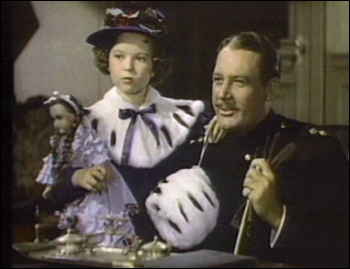 I think today is my father's 80th birthday. I'm not sure – all the time I was growing up, I was confused as to whether it was the 19th or the 20th of February.
I think today is my father's 80th birthday. I'm not sure – all the time I was growing up, I was confused as to whether it was the 19th or the 20th of February.
That's the relationship I had with my father – it was hard to ask him even when his birthday was, and then later too hard to admit I didn't know. I say "had" though he's still alive because I have no relationship with him now. It's better that way.
Thinking about it, I write about father/daughter relationships quite often. In The Loves of Leopold Singer, the woman with the better father (and by that, I mean the father who is there for her and actively cares for her) ends up with the hero. When a rake becomes a good father, he becomes a better man. Even in my fantasy Bleeder, a king who is a good father goes against ingrained custom to give his daughter something royal first-borns are always denied: a name.
A lot of my heroines are orphans.
In the upcoming Bride of Fae, the fairy Aubrey is tormented by feelings for his daughter Elyse. He'd rather not deal with the inconvenience. Hm. A psych candidate could write a dissertation on my books….
At any rate, I don't wish my father many happy returns of the day. It isn't a sad thing. I'm glad to be free of him. But then, maybe I'm not.
February 18, 2012
I Suck At Doing Fundraisers!
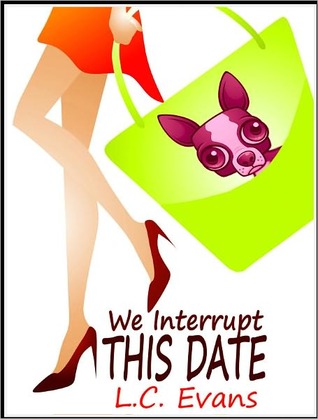 I like to put in a "no purchase necessary" entry in my giveaways so everybody can play – but maybe I shouldn't have done so with the LC Evans fundraiser.
I like to put in a "no purchase necessary" entry in my giveaways so everybody can play – but maybe I shouldn't have done so with the LC Evans fundraiser.
If I don't get at least 10 verifiable entries for the second question in the Rafflecopter widget, I'm going to have to cancel the giveaway. It's not a fundraiser if it doesn't raise any funds.
February 15, 2012
I Bow to the Convention of the Naked Man Cover
[image error]The beauty of epublishing is being able to fix something that isn't working.
The classic Waterhouse painting of the nymphs finding Orpheus definitely wasn't working. I bow to the mighty naked man cover gods. Here's the new cover for The Loves of Leopold Singer
February 13, 2012
FacebookThread Preservation 1A
KindleObsessed shared a link.

Spreading The British Love…
I was sitting around the fire* the other day (*looking through Pinterest) when I saw a poster I just had to have. It said: "Stay calm, the Brits are here." I thought this was genius, of course, (in part because it was covered in pictures of Mr. Darcy, and Mr. Thornton…& in part because they were sh…
Like ·
· Share · about an hour ago ·
JD Nelson likes this.
1 share
[image error]
Lk Rigel I 100% with you on this! Richard Armitage's Thornton is droolicious … but Mr. Thornton in the book is amazingly complex and endearing. I love the scene where Margaret first serves him tea. The wa he lingers over her refined manners broke my heart. Gah! I have to go read this again!!
49 minutes ago · Like ·
 1
1[image error]
KindleObsessed Yay!!! I'm glad I'm not alone on this.

37 minutes ago · Unlike ·
 1
1[image error]
Lk Rigel (if you've read the book, the scene in the movie is much better IMO)
33 minutes ago · Like
[image error]
KindleObsessed I agree…that scene is much better in the movie, but (in truth) I'll take it any way I can get it.
32 minutes ago · Unlike ·
 1
1[image error]
Lk Rigel gah … bad writing on my part. I mean that having read the scene in the book made the scene in the movie much better for me. haha.
28 minutes ago · Like ·
 1
1[image error]
KindleObsessed See…this is something "non-readers" don't really get (aka my husband) knowing the inner thoughts & intentions of the character before watching a crucial scene makes the anticipation/tension better. It adds this whole other element of understanding.
25 minutes ago · Unlike ·
 1
1[image error]
Lk Rigel
another scene later adds to this understanding of Thornton. At the Great Exhibition when Margaret's hoity-toity London friends are amused that Thornton would have ideas about the world (since he's "only" a mere manufacturer) and she defends…See More
19 minutes ago · Like ·
 1
1[image error]
Lk Rigel which is of course one of the major themes of North and South.
17 minutes ago · Like ·
 1
1[image error]
KindleObsessed Lol… I got ya going

13 minutes ago · Like
[image error]
Lk Rigel I really need to just go read the book again! hahaha
12 minutes ago · Like
[image error]
KindleObsessed I know. Me too. I usually read it once a year, but I didn't in 2011. Now I feel like I missed out.
10 minutes ago · Unlike ·
 1
1[image error]
KindleObsessed The thing about both of these books is this flagrant "alpha male" set up. They argue, they fight, they scowl & disagree, but that isn't who they are, that's who everyone expects them to be. Instead they are theses slightly damaged men who feel like, if anything else…they don't deserve the wonderful brilliant and intelligent women they are drawn too.
6 minutes ago · Unlike ·
 1
1
February 12, 2012
Zapstone's LC Evans Fundraiser & Giveaway
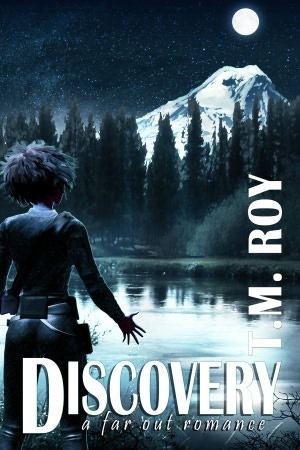 You know the drill – give the secret word in the comments to win a copy of Discovery: A Far Out Romance.
You know the drill – give the secret word in the comments to win a copy of Discovery: A Far Out Romance.
Please name the format you'd like.
The usual profit from the book will be donated to the Zapstone LC Evans fundraiser.
Second Chance to Win: Enter the Rafflecopter widget below to win a $25 gift card, Amazon or B&N, winner's choice. No purchase necessary – answering the first question gives you an entry. BUT you get 5 extra entries for each LC Evans book you've purchased (or do purchase) throughout the month of February. If you've purchased Discovery, that counts too!
You can find Linda's books here:
Kindle
Nook
Good luck – and happy reading!
a Rafflecopter giveaway
<a href="http://rafl.es/enable-js">You need javascript enabled to see this giveaway</a>.
February 11, 2012
Zapstone Makes February LC Evans Month
 In January, LC Evans lost her battle with cancer. I didn't know Linda that well. We'd "met" at Kindleboards over a year ago. I remember her fun covers and mulling over the title for The Witness Wore Blood Bay.
In January, LC Evans lost her battle with cancer. I didn't know Linda that well. We'd "met" at Kindleboards over a year ago. I remember her fun covers and mulling over the title for The Witness Wore Blood Bay.
I remember that she was always nice. Never insane (as authors are wont to be). Classy.
I didn't know Linda well, but her death hit me hard. I cried when I learned about it. I'm sure I projected things onto her.
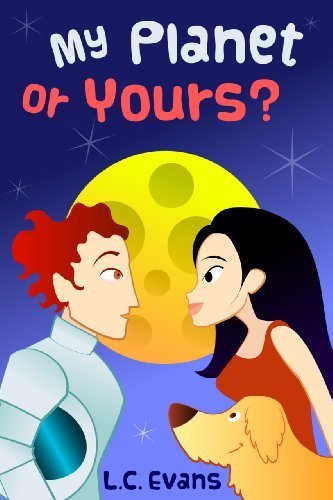 LC Evans's last book is a space opera, SFR (science fiction romance) romp called My Planet or Yours? In keeping with the theme, Zapstone Publishing is donating all the proceeds throughout February from their book in a similar genre, Discovery: A Far Out Romance. It's available in about every format.
LC Evans's last book is a space opera, SFR (science fiction romance) romp called My Planet or Yours? In keeping with the theme, Zapstone Publishing is donating all the proceeds throughout February from their book in a similar genre, Discovery: A Far Out Romance. It's available in about every format.
I'm sure readers of this blog will remember how much I like Discovery. We had a fun giveaway here when I was in the middle of reading it. Well, Zapstone liked my review and lifted a blurb from it for their gorgeous new edition of the book – and they included an excerpt of Give Me in the ebook version as well. How fun is that?
 Long story short: Tomorrow in conjunction with Zapstone, this site will give away more copies of Discovery: A Far Out Romance, and the usual profit for each book donated to the February LC Evans fundraiser.
Long story short: Tomorrow in conjunction with Zapstone, this site will give away more copies of Discovery: A Far Out Romance, and the usual profit for each book donated to the February LC Evans fundraiser.
-oOo-
But wait – there's more! We'll also have a Rafflecopter giveaway for a $25 Amazon/B&N gift card – winner's choice.
You know how it works! Only newsletter subscribers can play – so your odds of winning are very good!
Open your newsletter tomorrow to find the password to the rafflecopter gift card giveaway and the secret word to win a copy of Discovery – in either Kindle or epub format.
February 4, 2012
Nathan Fillion – Super Hero
A Story About Charlotte Sometimes
I've copied in their entirety two posts from 2007 by Penelope Farmer simply because they are wonderful and I don't want to lose them in some future internet wipe. (Thanks to Mark Coker via Theresa Weir for finding this.)
This is a story about how we often touch each other without knowing we've done it, and how sometimes the connection comes back to us in surprising ways.
=+=+=+=+=+=+=+=+=+=
SATURDAY, JUNE 09, 2007
= = = = =
Granny seems to remember promising the story of The Cure and Charlotte Sometimes - the song -a long while back. She is about to start posting more, much heavier stuff, about the care home for people with mental problems. But she thought she'd post this first as light relief. Yet again, though, she'll be writing in the first person.
*****
Years and years ago, in the late sixties, I wrote a book called Charlotte Sometimes, a book set in the kind of English boarding-school my twin sister and I attended/were incarcerated in – take your pick – for part of the fifties. The main character – Charlotte – finds herself switching back and forth between the year 1918 and her own time, taking the place of another girl in 1918, while that same girl takes her place in the 50′s. The whole book turned – though I didn't see that when I wrote it – on identity; how do people identify you as you? How could they accept one person as quite another (assuming the two people look reasonably similar to start with as Charlotte and her 1918 equivalent did)? This happens to be a particularly relevant question for twins in general, and still more so for two not identical but similar looking twins like my sister and me, quite different in character and ability – even opposites in many respects, she right-handed, me left – but always taken together not singly. This was another connection I did not make at the time I was writing. The book would probably have worked less well if I had.
 But other people made connections; the book struck chords; became my most successful by far. Just how successful I didn't realise till more than twelve or thirteen years later when one of my children came home from school and said 'Did you know, mum, there's a song called 'Charlotte Sometimes'?
But other people made connections; the book struck chords; became my most successful by far. Just how successful I didn't realise till more than twelve or thirteen years later when one of my children came home from school and said 'Did you know, mum, there's a song called 'Charlotte Sometimes'?
No, Mum did not. Nor did her agent, whom she alerted immediately. Neither listened to rock much, neither had heard of the group called The Cure that performed this song. 'Get a copy' ordered the agent, so Granny went out and bought the single. The lyric to the song was on the record sleeve. Not only was it about confused identity, much of it consisted of quotes from the book. The title of the instrumental track on the B side, what's more, was another quote from the book.
Now copyright law at the time was a very crude instrument. 'Moral' and 'intellectual' rights, acknowledging an author's ownership of themes and ideas, as well as the actual text which incorporated them did not exist. The sole criteria for judging whether copyright had been breached was the proportion of a text used. Taking a mere two lines, from a poem, from a song lyric, in any book of mine would have constituted a breach of copyright unless permission was given for it, and, often, a hefty fee paid. On the other hand the amount of text used in a song lyric, even a longish one like this, was such a relatively small part of an entire novel that it would not count as breach of copyright. Nor did an author have any right to a title. Nor do they still. Googling Charlotte Sometimes for this piece I discovered a relatively recent film of the same name, not related to my book in any way. Such a title is unlikely to be pure coincidence. I suppose it's a kind of flattery really- even though I'm sure the inspiration here was the Cure song not my book – perhaps I shouldn't mind; but I do; a bit. I thought up that title first.
The blatant use of the text in the song was another matter; even then, it was, possibly, contentious, despite the limitations of the copyright law. Letters, faxes, were exchanged between my agent and the Cure's management. The Society of Authors took the matter up and went to consult counsel; counsel's advice was that yes there might be a case for breach of copyright in this case, but if the matter went to court they couldn't be sure of the outcome. The Society of Authors, a fairly timid organisation on the one hand, and a fairly poor one on the other, decided to take it no further. As I couldn't afford to follow it up myself, as the company were threatening to delete the song, and it was already clear it was doing wonders for my sales – and adding somewhat to my fan mail – we decided to back down.
So things went on for ten years or more. The extra income fromCharlotte was useful; it was less than a pittance compared to what the Cure would have earned on their song, but at least it kept the book in print – it is the only one of my books that has always stayed in print, going through 3 or 4 separate editions. I enjoyed some of the other fallout too; the letters from people I wouldn't normally have expected to hear from; the reports in music journals like New Musical Express about girls deciding they were schizophrenic and renaming themselves 'Charlotte' because of the song – and directly or indirectly – because of my book; the naming of a yacht, 'Charlotte Sometime' – one year it came second in the round-the-Isle-of -Wight race. I ceased to be annoyed, even enjoyed the whole thing. It's good to be remembered for something as a writer, if only for one book. Many other writers disappear altogether but I didn't, entirely.
The Cure themselves went quiet for a while, They issued some new albums from time to time but did not tour. But in 1996 I think it was, I saw that they were going to tour again, starting with a huge gig at Earl's Court just up the road from Hammersmith where I was living. I decided to try and get tickets; to get myself backstage if possible, to meet the Cure themselves; in particular to meet the group's lead singer and song writer, Robert Smith. It wasn't easy getting in touch with them; even when my agent and I managed it between us – discovering in the course of this that The Cure's base was in a building they'd named 'Charlotte House' – the management was deeply suspicious. The law had changed by now, moral ownership was acknowledged, they appeared to suspect I was going after them again. Finally my agent and I convinced them this wasn't so. They agreed: yes, there would be tickets for me at the Box Office. And yes if I came early and went back stage, I would be allowed to meet Robert Smith himself.
And so it was I offered the second promised ticket to my twin sister's daughter, my niece, born a year after the book came out and named, appropriately for the evening, 'Charlotte' (if I so much as hinted that she might have been called after the fictional Charlotte, my sister would rise up out of her grave to clobber me, so I won't). On a June evening – or was it July?- we set off together for Earl's Court for my – if not Charlotte's – very first – and probably last – rock concert. To be continued.
Labels: Charlotte Sometimes and The Cure The Cure(d): Robert Smith for ever…
The Cure(d): Robert Smith for ever…
Earl's Court is ENORMOUS. And noisy – or so it seemed to me. But then the only times I'd been there before was for the Royal Tournament – an entertainment now, thankfully, defunct – either as a child or, later, with a wargame-mad son. There were a lot of bangs in that. But rock concerts, I suspected, come much louder.Charlotte and I had been told to present ourselves an hour before the show was due to start. We picked up our tickets, and were led out of the entrance area and through into a cavernous space, the wide but not very tall screens separating one section from another making it appear still higher, still vaster. It was so much beyond any human scale that the group waiting in the same space as us looked dwarfed, like as yet unconnected cogs in some industrial metropolis. There was nothing to sit on, or lean against. It was dusty, I think. If not it looked it. Various other people came in and out. Someone who seemed to be in charge of the group admonished them from time to time, bossily but cheerfully.We waited a long time. More people came, more people went. Apart from us, only the group stayed put. We were told that the people were American Cure fans from the mid-west, winners of some competition for which the prize was a trip to London, tickets for the Earl's Court gig and a meeting beforehand with The Cure themselves. All of them were clutching record sleeves, photographs, all of them were looking awed and excited, chattering among themselves in rather frantic American voicesTime went on. It was not until almost time for the sold-out concert to start that the whole of the Cure sloped in between two of the screens; sloped really is the right word, I promise you – slouch might have been near too; but 'slope' is better. Some of them clutched instruments; they had quite a lot of hair between them. They looked pretty much as you'd expect a pop group to look, not that I'd had much experience. The American group converged on them giving little shrieks. Pens came out, record sleeves and pictures were signed, the group smiled in a bored kind of way: clearly this wasn't their favourite aspect of the job. Why should it be?Even so it took up a lot of time. The time the gig had been advertised to start was well past already.I'd given up hope of anyone coming near us. Charlotte, shifting from foot to foot, was looking at me and shrugging. I was looking at my watch again, ruefully, and shrugging back. But then quite suddenly, everyone disappeared – the group of fans, the Cure, the watchful functionaries, the security guards, everyone; everyone but Robert Smith that is, who was sloping towards us (yes, 'sloping' once again will do it) hair on end, lipstick smudged, a beer can in one hand, and in the other a very tatty copy of the first paperback edition of Charlotte Sometimes. It was a Puffin book and the picture on the front was of two little girls: the only girly-looking edition of the book ever, and the very last one I would have expected him to be holding.
'Hi,' he said, thrusting it towards me. 'Could you sign it for me, please?'
He opened it up: from the first page onward, line after line had been underlined in pencil. 'You see how inspired I was,' he said, adding behind his hand, looking at me sideways, 'how I nicked it.'
I laughed, I couldn't help it. Then I signed, as requested, with more than the usual flourish. 'To Robert,' I wrote, 'love from Penelope.' And added my whole name to the title page, the way writers do.
Robert Smith apologised for the beer can. 'I have to keep my throat in good shape,' he said. Then he apologised for not being able to play the song in the main part of the concert, 'We've got to publicise the new album, you know. We'll play it as encore,' he said. 'I promise.' Underneath the lipstick, the standing on end hair, the Gothic everything, I can promise you, wombats, that Robert Smith really was just a nice, not to say very nice, very well brought-up boy from Sussex who not only loved his long-term wife but also probably loves -or loved – his mother.
Even eleven years older, he probably still is a very nice boy at heart. Why shouldn't he be?
Then he told me the story of how he'd come across the book in the first place.
'My elder brother used to read to us at bedtime,' he said, 'I was about twelve or so and he was still reading books to us. Your book was one of them, it never got out of my head. Once I got into music I wanted to make a song about it. That's how it happened.'
We didn't mention copyright. I admitted I liked his having written the song, and we agreed it might be nice to be in touch again, in slightly less rushed circumstances. 'Have to go. I'm running late' he said and sloped off, still clutching his beer can, still clutching his tatty copy of Charlotte, now with my signature inside. And 'Love from Penelope.'
I can't quite say the concert was an anti-climax. Unlike some later Cure concerts that year it got lousy reviews in various places; among other things there was a lot of trouble with the sound system. Yet it still seemed amazing to me, from my innocent standpoint, much more noisy even than Royal Tournament, and much more spectacular, lighting-wise, though I wasn't so sure about the music (I gathered afterwards it was far from their best album). I suppose it would have seemed tame to anyone who's ever seen Madonna, which I hadn't and still haven't except on television, briefly. But it didn't seem tame to me. The way the sound, the light, took me over, thrummed through me, physically, was outside anything I'd had experienced before. It was thrilling, as opera can be thrilling, though in an entirely different way. (Still, probably, I prefer opera. Sorry about that.)
The band went out and came back before the encores. And then it happened. A few familiar chords sounded; everyone started cheering. Robert held up a hand – stilled them – 'you all know the song', he said – more cheers, but stifled – 'this evening,' he went on, 'the writer of the original book is here in the hall with us.' The cheers rose again and he didn't stop them this time as the lights swung round to where Charlotte and I were sitting and picked us out. People craning round to see, I got up, put up my arms, waved my hands about and acknowledged them; the first and – certainly – the last time I'd get that kind of buzz, the kind rock stars are used to, but writers most certainly aren't, even the best known ones. Then the chords swelled up again, the cheers faded and I sat back and listened with everyone else to what was by now, even to me, something deeply familiar, even effecting in its way. My tune you could say; yes, really.
Robert Smith and I never did get round to communicating. I don't know we'd have had much to say to each other if we had. I seemed to remember sending him a Christmas card that year, but that was it. If he was grateful to me for the book – I think he was – I suppose I have to say – through slightly clenched teeth, being, among other things so very much poorer than he is – I have to be grateful to him too for that brief moment of pop glory, and for all the rest. Charlotte after all is still in print, has even gone into a new American edition. Cheers, Robert, wherever you are; though wine rather than beer is my tipple, I'm raising my glass to you.
Labels: Charlotte Sometimes and The Cure
February 2, 2012
Orpheus, Eurydice, and The Loves of Leopold Singer
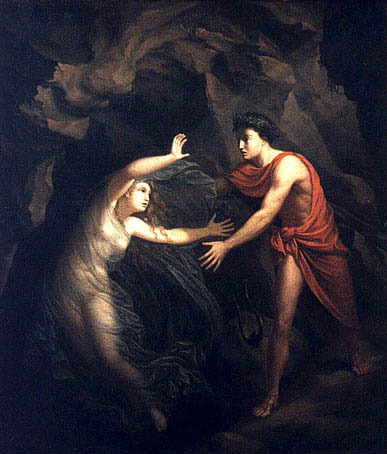 Most people know something of the story of Orpheus and Eurydice: When Eurydice died from a venomous snake bite shortly after their wedding, Orpheus was distraught.
Most people know something of the story of Orpheus and Eurydice: When Eurydice died from a venomous snake bite shortly after their wedding, Orpheus was distraught.
He journeyed to the underworld and begged Hades to return Eurydice to life.
When Orpheus played his lyre, the music was so sweet that for the brief duration of the song the sufferings of all in the underworld were eased. As reward, Hades granted Orpheus's request.
With one catch (there's always a catch). Orpheus was forbidden to look at Eurydice until they were both back on the earth's surface. You can probably guess from the picture what happened.
In The Loves of Leopold Singer, Leopold Singer (singer – get it? get it?) is an Orpheus figure. When Leopold's wife is traumatized shortly after their marriage, she sinks into a kind of depression. He'd love nothing better than to save her from her pain, but in a twist on the myth, she has to find her own way through the passage of Tenarus to the bright, sunshiny day.
I've strewn references to the mythology of Orpheus throughout LOLS. It isn't at all necessary to know the myth to enjoy the story, but I hope people who do like the stories will enjoy that aspect of the novel.


